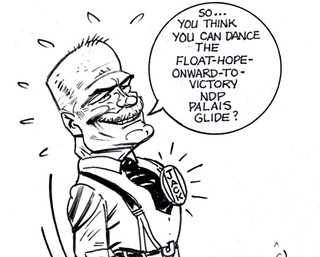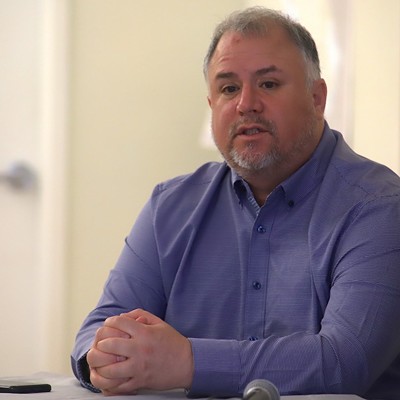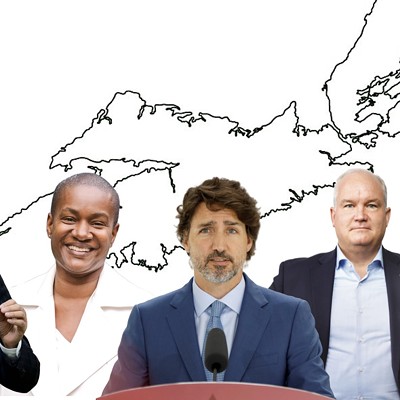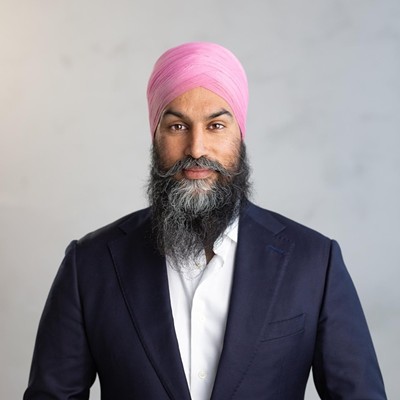Matt Hebb, the 2009 campaign manager for the Nova Scotia New Democrats, injected some humour into his presentation last weekend at the federal NDP convention in Halifax. His talk was about how the NDP managed to pull off a majority government in the June provincial election. "One of the secrets of winning is to get incompetent Tories," Hebb quipped. "People agreed it was time for Rodney MacDonald to go."
Hebb acknowledged that normally Nova Scotia voters would have turned to the Liberals. But the new Liberal leader, Stephen McNeil, hadn't established himself yet. So the NDP, led by the unpretentious and better-known Darrell Dexter, was finally poised for a breakthrough. Dexter had fought successfully on behalf of nursing home residents losing their life savings after being forced to pay for their own medical care. That issue was a strategic one, Hebb said. It helped establish the NDP as "the party that cares." It also fit with the party's main promise "to make life better for today's families."
Hebb and his counterpart in Manitoba were asked to speak to the 1,300 convention delegates so that federal party members could get tips on how to run winning election campaigns. Manitoba has elected three majority NDP governments in a row. The federal party, on the other hand, is still mired in fourth place in the House of Commons, with only 36 of 308 seats. Some federal members argue the NDP should adopt polished marketing strategies, slicker advertising and catchier slogans to win its way to power. Some were pushing to "re-brand" the New Democratic Party by dropping the word "new." Thankfully, that name-change proposal was far enough down the list that it didn't come up for debate. But there was still plenty of marketing talk, with one supporter asking whether there was anything new about the "NDP product."
Fortunately, the convention heard from a pair of Americans who worked as key organizers in Barack Obama's presidential campaign. Marshall Ganz, a veteran organizer on behalf of farm workers and civil rights causes, told delegates the Obama campaign attracted one-and-a-half million volunteers by offering hope, focusing on shared values and shifting "to a politics that resisted turning people into customers for finely targeted messages." Ganz added: "We recognized people as citizens [who could] come together, work together and decide their future together." The Obama campaign used town hall meetings, house parties, interactive web sites, email, Facebook, Twitter and blogs to encourage people to say what they thought.
But, said Betsy Myers, Obama's chief operating officer, "Everything was a call to action offline." People were asked to donate money, volunteer at the local campaign office, organize house parties, phone their friends and canvass door-to-door. "Always ask for something," Myers told the NDP delegates. "People want to be involved. They want to be heard." She said that organizers would ask people who came out to meetings: What's your story? Why are you here? What matters to you? "Our campaign was not about talking at; it was about listening to," Myers added.
Ironically, the two Americans were talking to a Canadian party that was once expert in grassroots campaigning. During the 1960s, the NDP perfected door-to-door canvassing techniques designed to identify supporters, listen to their concerns and then, get them to the polls. But a steady decline in volunteers over the decades coupled with the growing influence of television led all political parties to rely heavily on pre-scripted news events, polished campaign ads and telephone marketing. Personal contact with voters dwindled and, not surprisingly, so too did voter turnout. The Nova Scotia election in June set a new low with only 58 per cent of voters bothering to cast a ballot.
The federal NDP and their provincial Dexterite cousins would do well to heed the advice from the Obama campaign. Offer hope, focus on shared values, treat people as citizens, not consumers, and above all, ask for their help.
















